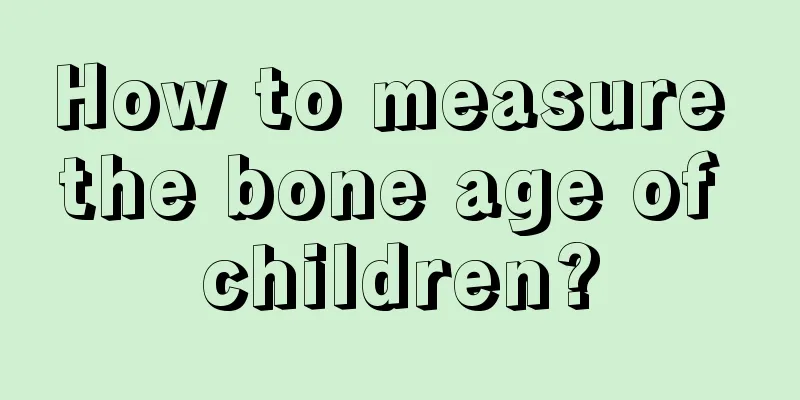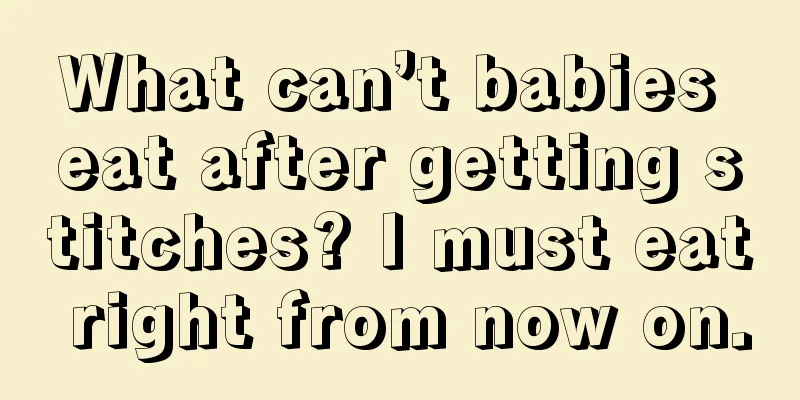Why does a newborn baby have a sound in his throat when drinking milk?

|
Many careful parents will find that their babies always make wheezing sounds in their throats when they are feeding. New parents are afraid that there is something wrong with their babies. In fact, parents don’t need to worry. This is a normal physiological phenomenon. Generally, this symptom will gradually improve with the increase of baby’s age. However, if the baby has other symptoms, parents must pay attention to it and never take it lightly. Why does a newborn baby have a sound in his throat when drinking milk? 1. Normal physiological manifestations of newborns It is generally normal for newborns to make wheezing sounds when feeding. Their laryngeal cartilages are not fully developed and are in a fragile stage. They make snoring sounds when they feed and breathe hard. This is not due to phlegm in the throat. When the baby is about 5 months old, as the bones develop and the laryngeal cartilage returns to normal, this situation will disappear. If the baby still has wheezing sounds after six months, parents should take the baby to the hospital for examination to eliminate the root cause that affects the baby's growth and development as soon as possible. 2. The nasal cavity is blocked by nasal mucus The metabolism of a two-month-old baby is very active, and breast milk is easily digested by the baby, so the rate at which various glands secrete hormones will be faster than that of adults. Their nasal cavities always secrete a lot of nasal mucus. If parents do not clean it in time for the baby, the nasal cavity will be blocked by the mucus, which will affect the baby's breathing through the nose and make a whirring sound when breathing. Parents should regularly clean their baby's nasal cavity with a moist medical cotton swab to ensure that the baby can breathe smoothly, and be careful and gentle in their movements. 3. Inflammation of the respiratory tract When the baby makes wheezing sounds while feeding, parents should also consider pathological factors - respiratory tract infection. Especially in the dry autumn and winter, there are a lot of dust pollutants in the air, and it is also the peak season for influenza. Since newborns have weak immunity, they will be more likely to suffer from respiratory diseases, causing symptoms such as colds and pneumonia. When the respiratory tract is inflamed, the baby's exhalation sound will be heavier. Mothers should observe carefully and take precautions in normal times. 4. Symptoms of laryngomalacia If the mother does not provide the baby with enough calcium during pregnancy, it may cause calcium deficiency and collapse of the newborn's laryngeal cartilage, leading to congenital laryngeal chondromalacia. Newborns with this symptom will feel blocked when eating liquid food, making whirring sounds and are more likely to choke on milk. Parents should pay attention to the speed at which their baby usually feeds to prevent choking and bronchial pneumonia. |
<<: How old is the baby when all the teeth grow
>>: Why does the tooth hurt when there is no cavity
Recommend
Reasons why babies hum at night
Children cannot speak, so if they protest or want...
Introduction of Bifidobacterium infantis
Maybe many mothers don’t know what kind of bacter...
What to do about eczema in children
Eczema is a very common disease. This type of dis...
Swollen lymph nodes in the neck of children
Children are the hope and future of the motherlan...
Treatment for blisters on children's hands
Many parents will find that their children often ...
Normal range of lead for two-year-old babies
Lead poisoning is a disease that can affect the h...
Is it good to bathe a newborn baby every day?
It is not good to bathe newborns every day. There...
Causes and dangers of childhood obesity
What are the causes and dangers of childhood obes...
Can newborn vaccination be delayed?
I believe many parents know that when a baby is b...
How to correct a child's hunchback
Some children have hunchbacks, and their parents ...
Measures to prevent heat stroke in babies in summer
In the sultry summer, heat accumulates in the hum...
What to do if a 4-year-old child speaks unclearly and stutters
There are many adults in our lives who stutter wh...
Tips for dealing with a high fever in children
It is generally necessary to be careful when chil...
Black tartar on baby's teeth
The health of teeth has always been worthy of eve...
What is the nebulizer formula for children's cold and cough?
It is okay to use physical and chemical methods t...









